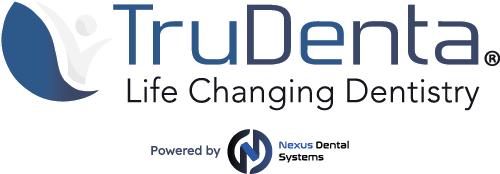The What?
The temporomandibular joint (TMJ) is where your jaw connects to the side of your head. It needs to be able to move up and down and side to side, as well as handle the enormous forces that the jaw can exert. It one of the most complicated joints in the body, with a specialized structure and tissue makeup.

You’re Not Alone
If you are having pain or other problems with your jaw, you’re not the only one — an estimated 10 million Americans also suffer from TMJ issues.
Take Control
TMJ problems can be chronic and debilitating, and if left untreated can lead to other symptoms like migraines and tinnitus. Fortunately, there are now non-invasive and drug-free ways to resolve imbalances in the TMJ.

Jaw, Face, Neck, or Ear Pain
The many nerves present in the jaw can result in pain appearing in nearby areas, and can cause pain or tenderness in different locations even if the jaw itself does not hurt.
Limited Range of Motion
If the jaw does not move as far or as easily as it usually does, it might be a sign of problems with the TMJ. Other common symptoms include the jaw locking in an open or close position, as well as clicking or popping noises during movement.

Too Much Power
The human jaw can generate over 260 pounds of force at the molars, and unless this pressure is perfectly balanced it can throw the delicate balance of the jaw’s muscles, tendons, nerves, and ligaments into disarray.

How Did This Happen?
There Are Several Factors That Could Be At Play:
- Stress is an important factor — it frequently increases muscle tension in the jaw, which creates imbalances over time.
- Any kind of physical trauma.
- Dental work, orthodontics.
- Any quirk in your eating habits, or grinding of the teeth.
- Or it might just be time — your mouth and jaw are made up of living tissue, and can shift as you age.

Reduce the Pain
- Pain relievers may be helpful, as well as sedatives or muscle relaxants to reduce tension in the jaw. Tricyclic antidepressants are also occasionally used for pain relief.
- When dealing with chronic pain it is important to be mindful of side effects and take them under the supervision of a professional — dangerous liver and stomach issues can result from overuse of over-the-counter pain relievers, as well as the side effects inherent to prescription medications.
- Injections of botulinum toxin (“botox”) directly into the jaw muscles are sometimes considered, but this approach is not FDA approved for TMJ problems and may have permanent and negative effects on bone density and muscle tissue.
Surgery Is Not Recommended
Any drastic changes to the mouth and jaw are considered to be controversial at best — the National Institute of Dental and Craniofacial Research recommends that surgery to correct TMJ issues be avoided whenever possible.
Get Your Life Back
Finding And Treating The Underlying Cause
- Bite Force Analysis — this TruDenta technology is able to analyze and display the different forces at play in your mouth and jaw, right down to how much pressure is exerted by each individual tooth.
- Range of Motion Analysis — TruDenta’s ROM system measures any abnormal or restricted movement in your head and neck in order to narrow down potential causes and create a specialized treatment plan.

TruDenta Treatment System
- TruDenta’s different technologies work together to reduce pain and inflammation from the very first session, with the end goal of creating a complete and lasting resolution of symptoms.
- No injections and no medications means no unpleasant side effects.
- The whole-body approach combines state of the art ultrasound, cold laser, microcurrent, and trigger point manipulation techniques.


